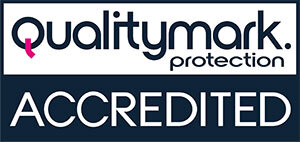Does Insulation Keep A House Cool During Summer? Written by: Energy Efficient You Published: 18th July 2024 Get in Touch Does Insulation …
Cavity Wall Insulation Grants
You could be one of the thousands of people eligible for a free cavity wall insulation grant. Fill out our quick form to see if you qualify today.
At Energy efficient you, we’re here to help you improve your home’s energy efficiency by helping you get access to government grants for cavity wall insulation.
Grants For Wall Cavity Insulation
What Are Cavity Wall Insulation Grants?
A cavity wall insulation grant is a financial assistance program offered backed by the government as part of the ECO4 scheme. The aim is to help homeowners and low-income households cover the cost of installing cavity wall insulation in their properties.
Cavity wall insulation involves filling the gap between the inner and outer walls of a property with insulating material, which helps to reduce heat loss and improve energy efficiency. By reducing the amount of heat lost through walls, homeowners can save money on their heating bills and reduce their carbon footprint.
These grants are available to homeowners who meet certain eligibility criteria, such as having a property that was built before a certain date or being on a low income. The amount of funding available may vary depending on the specific circumstances of the person applying for a grant, but it can help to reduce the cost of the insulation installation, making it more affordable for homeowners.
Cavity wall insulation grants have a few main objectives:
- Reduce energy consumption: One of the primary objectives of cavity insulation grants is to help homeowners reduce their energy consumption by making their homes more energy efficient. By insulating the walls, less heat will escape from the property, meaning that less energy is required to maintain a comfortable temperature. This, in turn, can help to reduce energy bills.
- Combat climate change: Insulating cavity walls can also help to reduce the carbon footprint of a property by reducing the amount of energy required to heat it. By reducing the amount of carbon emissions that are produced from heating homes, cavity insulation grants can play a role in tackling climate change.
- Improve health and well-being: A well-insulated home can provide a more comfortable and healthier living environment for occupants. By reducing heat loss, cavity wall insulation can help to eliminate cold spots in the property, reducing the risk of damp and mould growth. This can help to improve indoor air quality and the health of occupants.
- Increase property value: Insulating cavity walls can also increase the value of a property. As energy efficiency becomes a more important consideration for buyers, having an energy-efficient property can make it more attractive to potential purchasers, resulting in higher property values.
With the new goal set for the UK to go carbon neutral by 2050, the government is keen for more property owners to take up grants such as cavity wall insulation grants and first-time central heating grants.
External Wall Insulation Grant
Am I Eligible For A Cavity Wall Insulation Grant?
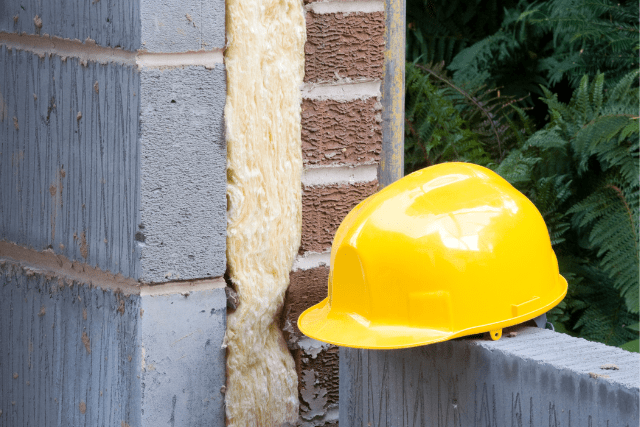
Eligibility for an external wall insulation grant in the UK will vary depending on the specific grant program being applied for and the area in which you live. Eligibility for a grant to install external wall insulation will depend on factors such as:
- Income level: Grants are targeted at low-income households, so you must demonstrate that your household income falls under £31,000 per year to qualify.
- Property ownership: Grants are only available to homeowners.
- Energy efficiency of the home: Your home will need a poor energy efficiency rating to qualify for a grant to install central heating. This can be an EPC (Energy Performance Certificate) of D, E, F, or G.
- Benefits: You will need to be in receipt of certain benefits such as Pension credit, child tax credit, or working tax credit to be eligible for the grant.
Grants External Wall Insulation
Why Should I Get Cavity Wall Insulation?
External wall several benefits for your home and can be a cost-effective way to improve energy efficiency. Here are just a few reasons why you might consider getting cavity wall insulation:
- Reduce your energy bills: Wall insulation will help save up to £180 a year on your energy bills.
- Reduce your carbon footprint: You can save up to 720kg of CO2 emissions every year.
- Reduce heat loss: Cavity wall insulation will help reduce the amount of heat that is lost from your home by up to 33%.
- Quick and easy: Installation is often quick, easy, and hassle-free if there is good access to your wall cavities. Not only that but we clean up after every installation.
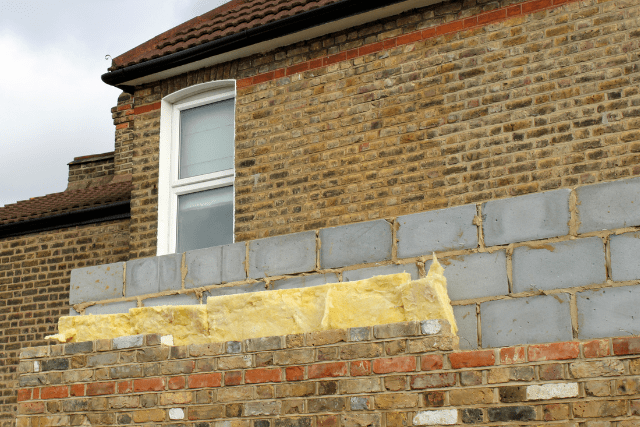
Government Grants For External Wall Insulation
Qualifying Benefits For A Cavity Wall Insulation Grant
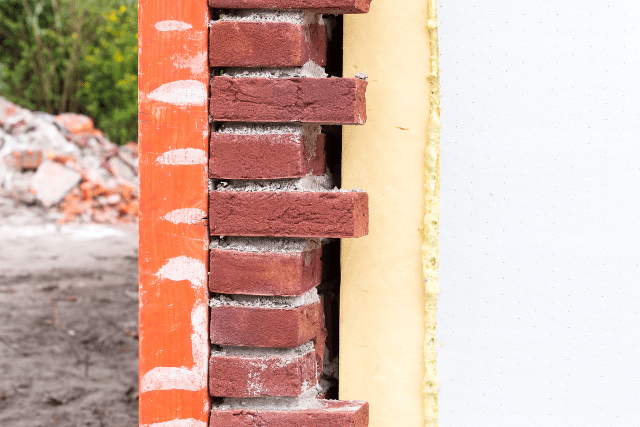
- Income Based Jobseekers Allowance (JSA)
- Income Related Employment & Support Allowance (ESA)
- Income Support (IS)
- Pension Credit Guarantee Credit
- Working Tax Credit (WTC)
- Child Tax Credits (CTC)
- Universal Credit (UC)
- Housing Benefit
- Pension Credit Savings Credit
Cavity Wall Insulation Grants UK
Is My Home Suitable For Cavity Wall Insulation?
Not all homes are suitable for cavity wall insulation. Here are a few indicators as to whether your property could have cavity wall insulation installed.
- If your property was built between 1932 and 1982 then you are likely to have cavity walls. Most homes built from 1920 up to 1990 will have space between their internal walls.
- If the thickness of your wall is greater than 11 inches, then the likelihood of the property having a cavity is high.
- If the bricks in your house are the same length, and are facing the same direction then your house is more than likely to have cavity walls.
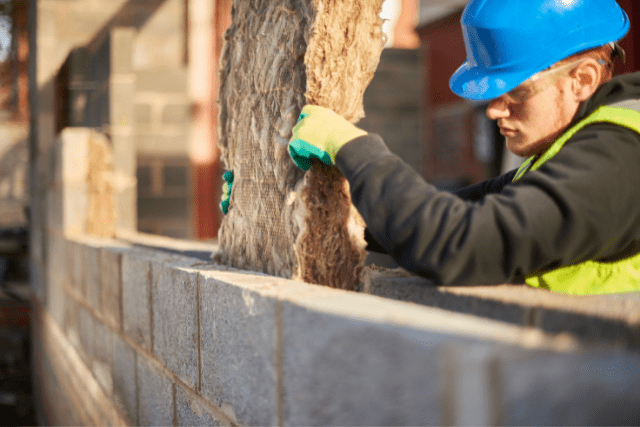
Eligibility For Cavity Wall Insulation Grant
Check Your Eligibility
Cavity Wall Insulation Grants Frequently Asked Questions
Frequently Asked Questions
The cost of cavity wall insulation depends on the size of the property. It can range from around £350 to £800 for a typical semi-detached house to get cavity wall insulation.
Cavity wall insulation is designed to last for the lifetime of a building, which is typically around 40-60 years or more. Every domestic cavity wall installation completed by Energy Efficient You Ltd is guaranteed for 25 years by CIGA (Cavity Installation Guarantee Agency).
If cavity wall insulation is installed correctly, it should not cause damp or condensation issues in a property. In fact, cavity wall insulation can help to prevent damp and condensation by reducing the amount of heat lost through the walls of a building, which can lead to a reduction in moisture levels and condensation.
It can take from one to seven weeks to get your insulation installed from applying for your cavity wall insulation grant.
No – in order to be eligible for cavity wall insulation, you must be claiming one of the eligible benefits.
Your home needs to have an EPC (Energy Performance Certificate) of D, E, F, or G to qualify for a cavity wall insulation grant. These scores mean that your home isn’t energy efficient and is a qualifying factor for a grant.
Yes – cavity wall insulation grants are available for people who claim a pension. If they meet the criteria for the grant, they will be eligible.
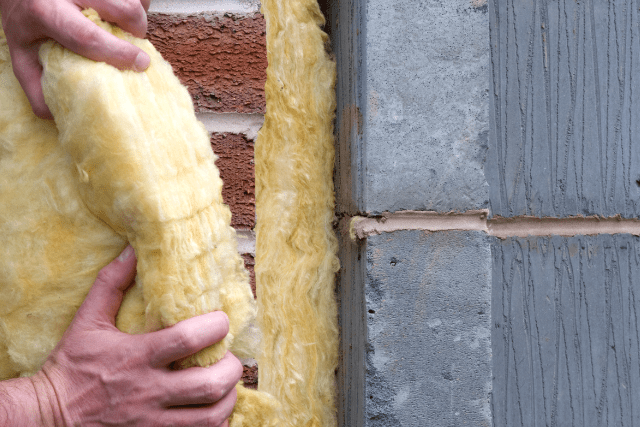
Grants For Cavity Wall Insulation
Government Backed Grants We Can Help With
Our Articles On Energy Efficiency
Learn More About Energy Efficiency
How To Keep Your Home Cool During Summer Written by: Energy Efficient You Published: 4th June 2024 Get in Touch How To Keep …
What Is A Back Boiler? Written by: Energy Efficient You Published: 16th May 2024 Get in Touch Back Boiler Heater Systems In …




